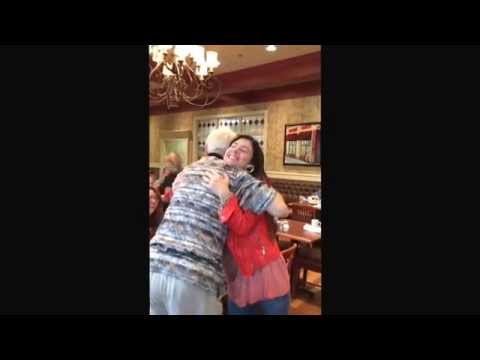Reflections on a Friend’s Suicide by Susan Lerner
Fifteen years ago, as a newcomer to Indianapolis, I packed my tots into the minivan and drove to a playgroup, desperate to meet other moms. Among the mothers was a stay-at-home dad. Toddlers wobbled across the floor, babies gummed Cheerios, and the dad and I chatted. We lived in the same neighborhood. Over the course of the next few months we began to bump into each other outside the confines of the playgroup—at the neighborhood playground, at Little Gym birthday parties. The dad, his wife, and son, came to kiddie get-togethers in my basement. They came for dinner. The father let me read a screenplay he wrote. When the time came to send our tikes to school—the neighbors chose public, while my husband and I picked private—our paths gradually diverged.
Last year my son, Sam, began his freshman year at the same high school our neighbor’s son attends. Sam joined the Quiz Bowl team. At that time my neighbor’s son, then a sophomore, had been on the team for a year, so my neighbor became my go-to person whenever I had a question about a Quiz Bowl event, which was often. The late afternoon competitions precluded most parents from attending, and sometimes the stay-at-home dad and I were the only ones in attendance. We settled into our molded plastic chairs, munched on the team’s snacks, and whispered to each other, trying to answer questions as we watched our kids compete.
Just before Thanksgiving, my friend killed himself.
I had no idea he was suffering is the thought that looped through my mind. It seemed true enough—we’d known each other a long time but weren’t close; it didn’t come as a surprise that he hadn’t confided in me. But how could I not have noticed he was dangerously depressed?
I had no idea he was suffering. At first I couldn’t get the thought out of my head, but before long it fell away and I saw the situation through a more honest lens: I did have an inkling that my friend was emotionally fragile; I just never allowed myself that thought. To admit that he was struggling would have made me uncomfortable, not because emotional distress was a scary unknown, but because I knew it well.
During my worst anxiety attacks I’ve faked calm. Tried to pass. Desperate to conceal my anxiety from others and myself, I worked hard to push it into a dark corner of my psyche. What I didn’t realize until after my neighbor’s death is that I kept a subtle distance from him because he reminded me of my secret. My reaction to him was a reflection of how I felt about myself. My friend was, for me, a mirror.
About a week before his suicide, I went to a yoga class where the teacher spoke about the concept of abiding. She read a book written by her childhood friend, psychiatrist Christine Montross. In “Falling Into the Fire,” Dr. Montross writes about extreme pathology. Her patients compulsively swallow household objects, subject themselves to serial cosmetic surgeries as a result of body dysmorphic disorder, are haunted by obsessive homicidal thoughts. The author examines these illnesses within the context of her patients’ narratives, seeing their symptoms as fallout from loss and trauma. At the end of each chapter Dr. Montross writes about her own life, illustrating the commonality between her patients’ experiences and her own. “Falling Into the Fire,” —part exploration of mental illness, part memoir, and part exegesis on the human condition—is a strikingly honest book written with compassion and extraordinary heart.
Montross explores the importance of abiding, “of being with patients as they suffer.” She writes that although she may not be able to provide her patients a quick cure, she can walk with them on their journeys and work with them to understand what’s causing their distress. In one section, Montross counsels a depressed woman whose child was killed in a car accident. In order to abide with this woman’s anguish, Montross sees that she, too, could lose her child through a circumstance over which she has no control. “I could lose my home, my financial security, my safety. I could lose my mind. Any of us could.”
Montross relays what a therapist once told her, that we all live beneath a veil of vulnerability, as if we and our loved ones will live forever. When catastrophe strikes, this veil dissolves and we are faced with the fact that we are all “perched on a precipice.” We like to think of those who suffer from mental illness as “other.” Montross’ stories illustrate that despite our different ways of coping with the pain and vulnerability of being human, we have the same needs: to be understood, to be loved.
I wish my shame about my anxiety hadn’t stopped me from reaching out to my friend. My heart breaks when I contemplate the magnitude of his anguish, so colossal that it drove him to leave his family, and this world, too soon.
Now that my friend is gone, all I can do is to try to find, from within this tragedy, meaning. His memory will be a reminder that what I—and others—go through, however painful, is not shameful. I now understand how important it is to offer an ear, to sit with someone’s suffering. My friend is gone, but his memory, for me, is a reminder to abide.
*This essay originally appeared in Word Riot Magazine.
Susan Lerner is a student in Butler University’s MFA in Creative Writing program. Her work has appeared in Word Riot, Monkeybicycle, JMWW, Bluestem, and The Believer Logger. Susan lives in Indianapolis with her husband, three teenagers, and dog, Mischief. In her spare time she posts book reviews at https://booklerner.blogspot.com.
Jennifer Pastiloff, Beauty Hunter, is the founder of The Manifest-Station. Her work has been featured on The Rumpus, The Nervous Breakdown, Jezebel, Salon, among others. Jen’s leading one of her signature retreats to Ojai, Calif over Labor Day in Ojai, Calif and over New Years. Check out jenniferpastiloff.com for all retreat listings and workshops to attend one in a city near you. Next up: South Dakota, NYC, Dallas. She is also leading a Writing + The Body Retreat with Lidia Yuknavitch Jan 30-Feb 1 in Ojai (3 spots left.) She tweets/instagrams at @jenpastiloff.























